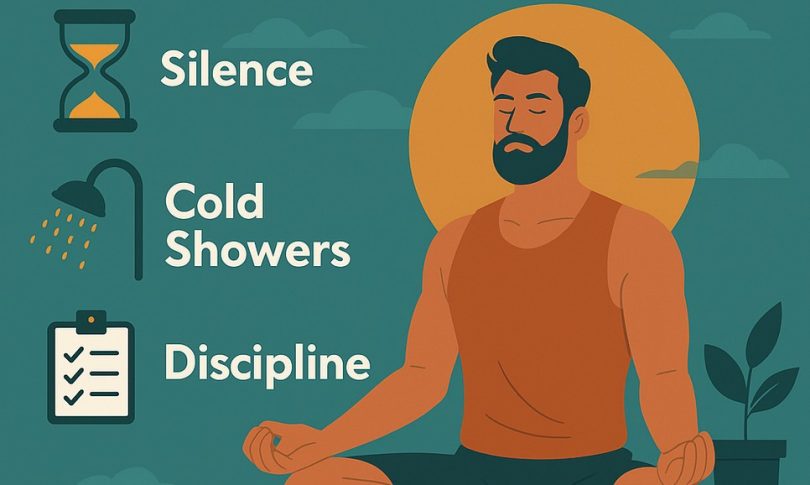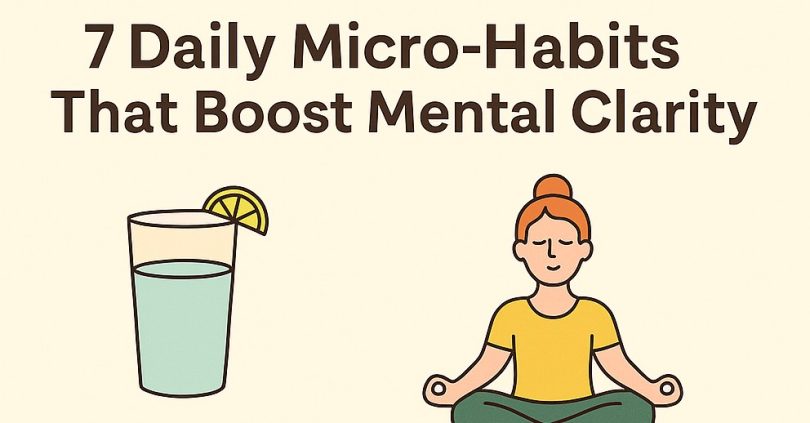Physical fitness and mental health – these two elements of wellness may seem distinct, but they are deeply interconnected. This article delves into the intricate relationship between mental health and fitness, supported by scientific evidence, demonstrating the effects on various mental health conditions, and offering practical tips to maximize the benefits of this connection. Let’s begin our exploration of this vital link.
Table of Content
- The Intricate Connection Between Mental Health and Physical Fitness
- Unveiling the Scientific Evidence Supporting the Connection
- Effects of Physical Fitness on Various Mental Health Conditions
- Understanding and Overcoming Barriers to Physical Activity
- Practical and Effective Approaches to Improve Fitness and Mental Health
- Wrapping Up: Reap the Rewards of a Mentally Healthy and Fit Life
The Intricate Connection Between Mental Health and Physical Fitness
The synergy between mental well-being and physical fitness is fascinating. Physical activity acts as a powerful mood enhancer, stress reducer, and overall mental health booster. The benefits extend beyond the commonly referenced “runner’s high”. Regular engagement in physical activities significantly influences our brain’s structure and function, thereby affecting our mental state.

Unveiling the Scientific Evidence Supporting the Connection
Neuroscientific research has illuminated the biological underpinnings of the relationship between mental health and physical fitness. It’s not just a subjective experience; it’s a scientifically proven phenomenon. Here’s a brief overview of two significant studies underscoring this connection:
- In 2018, the University of Vermont conducted research involving 100 individuals diagnosed with clinical depression. Following a six-week fitness regimen, a whopping 85% reported experiencing improved moods and diminished symptoms of depression and anxiety. This study highlights the potential of regular exercise as a practical and effective intervention for managing depression and anxiety.
- The Standard Medical Intervention and Long-term Exercise (SMILE) Study further underscored the role of regular aerobic exercise in managing major depressive disorder. The study found that adults who participated in regular aerobic activities experienced mood improvements comparable to those treated with antidepressant medication. Intriguingly, both groups outperformed the placebo group, indicating that physical activity could potentially serve as an effective, side-effect-free alternative to pharmaceutical interventions for depression.

Effects of Physical Fitness on Various Mental Health Conditions
Regular physical activity can have positive effects on a wide range of mental health conditions. Let’s explore some common conditions and how fitness can play a beneficial role:
- Depression: The link between mental health and fitness shines when addressing depression. Regular physical activities can significantly alleviate symptoms of depression by stimulating the release of mood-enhancing chemicals, such as endorphins. Moreover, exercise offers a distraction from depressive thoughts, helping to break the cycle of negative thinking.
- Anxiety: Another strong testament to the relationship between mental health and fitness is seen in anxiety management. Physical activity serves as a natural remedy for anxiety, easing tension, boosting both physical and mental energy, and promoting a sense of well-being through the release of endorphins.
- Stress: Stress reduction is another crucial aspect where mental health and fitness intersect. Engaging in regular physical activity can enhance the body’s ability to recover from stressful states by improving inter-system communication within the body, ultimately leading to reduced stress levels.
- Attention Deficit Hyperactivity Disorder (ADHD): Physical activity can aid in managing ADHD symptoms by improving concentration, memory, mood, and impulse control. In some cases, it can be as effective as ADHD medications like Ritalin and Adderall.
- Post-Traumatic Stress Disorder (PTSD) and Trauma: Regular exercise, particularly body-focused activities like yoga or martial arts, can help redirect focus away from negative thoughts and traumatic memories, promoting a sense of calm and control.
Understanding and Overcoming Barriers to Physical Activity
While the benefits of physical activity for mental health are considerable, certain barriers may impede individuals from becoming more active. These obstacles can include lack of time, low motivation, fear of injury, and limited resources. However, each of these barriers can be addressed and overcome:
- Lack of Time: If you struggle to find time for a dedicated exercise routine, try integrating physical activities into your daily schedule. Small changes like opting for stairs over elevators, walking or biking to work, or practicing desk exercises can accumulate and make a significant difference. Time management is essential in the intersection of mental health and fitness.
- Lack of Motivation: Maintaining a regular exercise routine can be challenging if you lack motivation. Consider finding a physical activity that you genuinely enjoy. This can increase the likelihood of maintaining a regular routine. Remember, a consistent exercise routine can significantly improve both your mental health and fitness.
- Fear of Injury: Fear of injury is a common deterrent. You can mitigate this fear by starting slow, mastering proper exercise techniques, and progressively increasing the intensity and duration of your workouts. Consulting with a fitness professional can also be beneficial.
- Lack of Resources: If you’re concerned about the cost of gym memberships, fitness equipment, or classes, remember that many effective physical activities require minimal equipment or can be performed free of charge. Walking, jogging, and body-weight exercises can be performed virtually anywhere, offering flexible and affordable options for physical fitness.

Practical and Effective Approaches to Improve Fitness and Mental Health
Now that you understand the robust connection between mental health and physical fitness, how can you leverage this relationship to enhance your own well-being? Here are some practical strategies:
- Set Realistic Goals: Aim for a moderate-intensity workout for at least 30 minutes on most days. If this seems daunting, start small and gradually increase your workout duration and intensity. Remember, it’s more important to create sustainable habits than to push yourself excessively at the beginning.
- Choose Activities You Enjoy: If running feels like a chore, don’t force yourself to do it. Instead, find activities that you genuinely enjoy, whether it’s dancing, swimming, cycling, hiking, or practicing yoga. Engaging in activities that bring you joy can significantly enhance adherence to your fitness routine.
- Exercise with a Friend or Group: Exercising with others can offer motivation, accountability, and a social outlet, enhancing the mental health benefits of physical activity.
- Integrate Mindfulness: Combining exercise with mindfulness techniques can amplify the mental health benefits. Activities such as yoga and tai chi blend physical movement with mindfulness, offering an integrated approach to mental and physical well-being.
- Seek Professional Guidance: If you’re new to physical activity or have health concerns, seek guidance from fitness professionals or your healthcare provider. They can help design an exercise program tailored to your needs, abilities, and interests.
Wrapping Up: Reap the Rewards of a Mentally Healthy and Fit Life
In conclusion, the interplay between mental health and physical fitness is powerful and backed by a wealth of scientific evidence. The benefits of physical fitness span far beyond improved physique, influencing a wide range of mental health conditions. Recognizing and overcoming barriers to physical activity is essential for leveraging the power of this connection. So start small, stay consistent, and gradually build up to reap the rewards of a mentally healthy and fit life.






